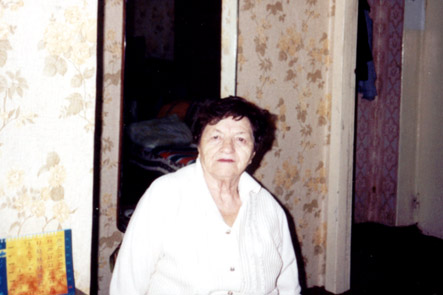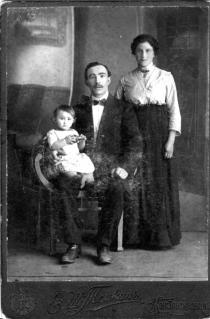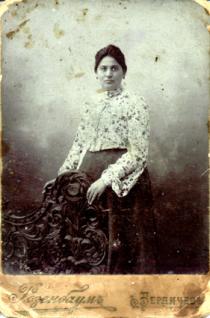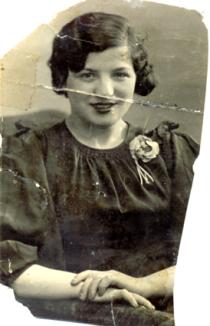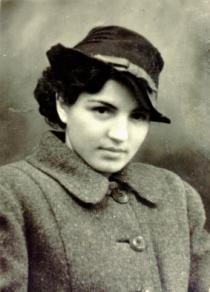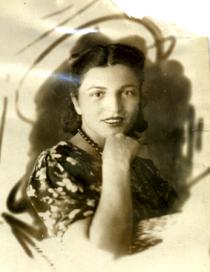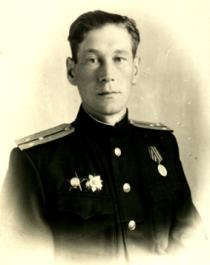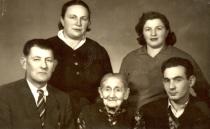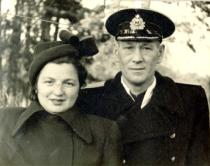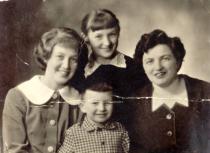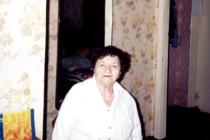This is me, Frieda Rudometova. This photo was taken in October 2003 in Kherson during the interview. I don't like to be photographed and we've never had a camera at home, therefore, I hardly have any prewar photographs.
I have met my husband in evacuation in in Zelenodolsk Tatar ASSR in 1934, we got married there. My husband Pyotr Rudometov after finishing school entered a Navy school in Leningrad. When the Great Patriotic War began, Pyotr was sent to a short-term course in Batumi and then - to the 'Stremitelniy' cruiser ship. Pyotr was wounded and sell-shocked near Sevastopol. After recovery he was sent to serve on 'Ohotnik', a small boat in the rear Navy unit in Zelenodolsk. Shortly after we got married Pyotr was sent to Batumi and our wanderings began. My daughter was born in Arudovo village where my husband's mother lived, in December 1945. I named the girl Lisa after my sister. Pyotr was serving in our army in Germany at this time. I need to say that Pyotr was very good to me. My nationality didn't matter to him. Pyotr served in Liepaja, Latvia, 15 years. Our daughter Nathalia was born there in 1951, and in 1956 our son Sergei was born. We had a good life. My husband supported the family. I also worked as a telephone operator few years. Upon demobilization Pyotr's older sister Tania living in Kherson invited us there. She wrote about nice climate and plenty of fruit, and after demobilization we moved to Kherson.
After we moved to Kherson my husband sailed on civilian boats for 11 years and later he worked at a factory. I stayed at home. Then my husband had a stroke and he was bedridden and couldn't move for 3 years. Pyotr died in 1990, 3 years before our 'golden wedding' anniversary. Since then I've been alone. My husband died at the time of revival of the Jewish life in Ukraine and Kherson. I began to socialize with Jews, go to the synagogue. I observe Jewish traditions and light a candle on Sabbath. I've got new friends among the clients and employees of the Hesed in Kherson. I attend the Day Center in Hesed every week. I get to know about the Jewish history, culture and about Israel. After a recent surgery I have problems with my right hand, and a visiting nurse from the Hesed helps me around. While my husband was working, I had a good life. I only t5raeled to Kiev or Sevastopol to visit grandmother, but I couldn't afford a vacation on the seashore or a health center. After perestroika, I receive a small pension for my husband since I hadn't worked enough to have my own pension. I also lease one room to students. My daughters are well provided for, but they need to support their children. I like today's living, when Jews have opportunities to live community life and they are not ashamed of their nationality and do not fear to hear the word 'zhydovka' like I did. My granddaughter Tatiana studied in Israel under an educational program. She likes this country and is eager to go there. She and Nathalia go to the synagogue on holidays. Therefore, the perestroika is good, for it supported restoration of the Jewry in the country and in my family.
